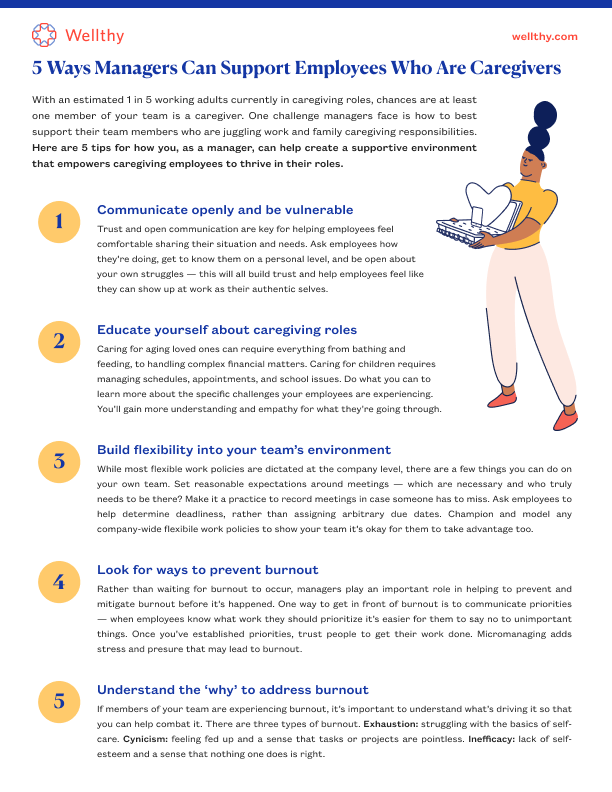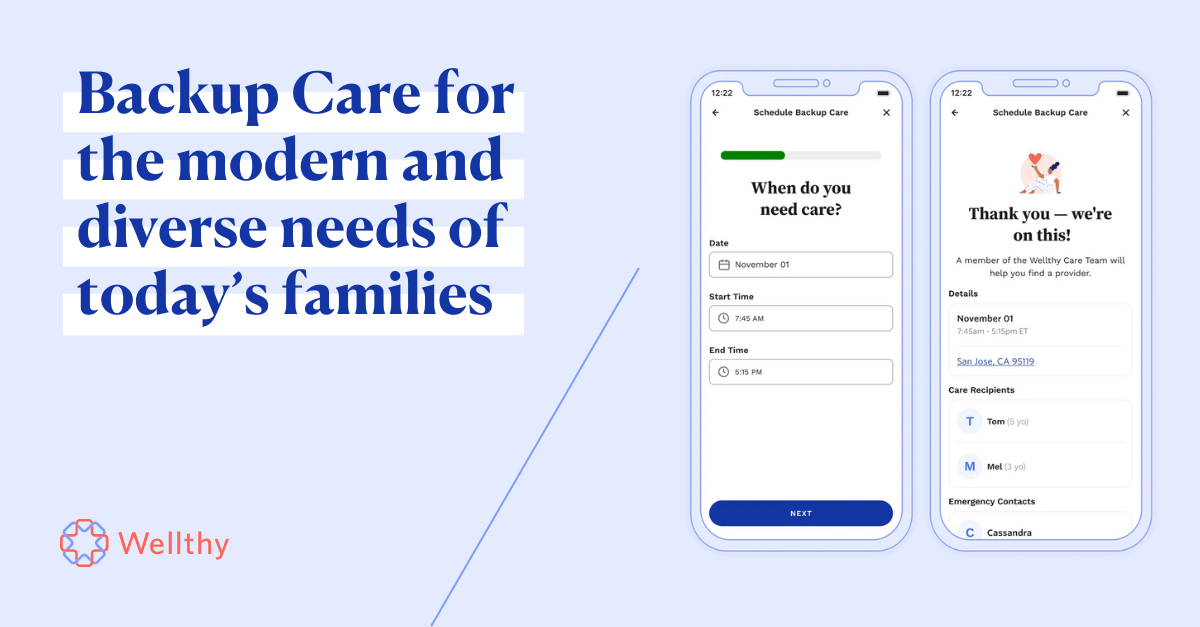From well-being to retention and a sense of purpose, managers make a difference in an employee’s experience. Bearing this responsibility isn’t easy. In fact, amidst social change and the realities of a global pandemic, today's managerial roles are more complex than ever.
During our recent Effectively Training Your Managers to Support Caregiving Employees fireside chat, we took a poll to learn about managers' workforce challenges during these difficult times. Participants responded to the poll saying that managers are tasked with:
- Facing team burnout (53%)
- Retaining talent (47%)
- Supporting team members who have caregiving issues (45%)
- Tackling remote/hybrid work (45%)
When you consider these challenges that managers are facing, it's no surprise that between Q1 and Q4 of 2020, manager burnout was up 78%, according to the 2021 State of the Manager report.
As an employer, there are three ways you can support your managers:
- Educate them about how to communicate with employees.
- Empower them to enable flexible work options.
- Train them about employee burnout.
Educate managers about the importance of communicating openly with employees.
For employees to feel comfortable talking to their manager about the issues they may be facing, the manager must model open communication. By being honest and vulnerable about any struggles they’re facing, managers can help reduce the sense of alienation that arises when an employee experiences caregiving and burnout issues.
Even if managers don’t know who the caregivers are on their team, at least a few employees are likely in a caregiving role. There are an estimated 53 million adults in the United States who serve as family caregivers. That’s more than one in five Americans.
Open communication is key for managers to support these caregiving employees. A manager who embraces open communication can encourage their employees to share how they’re truly feeling.
Feeling free to communicate openly at work relieves employees from the need to suppress feelings such as sadness, frustration, and fatigue due to emotional labor. When a manager models open dialogue it also builds trust and encourages the entire team to show up at work as their authentic selves.
Empower managers to provide the flexibility and support needed for employees’ unique situations.
In addition to educating managers about the importance of communication and the toll emotional labor can take on caregivers, empower them to offer employees the flexibility they need.
Workplace flexibility depends on the organization, the role, and the situation; however, minor changes can make a big difference when it comes to supporting unique employee needs. For example, managers can:
- Set expectations and provide feedback about flexibility so all employees understand the parameters and processes
- Avoid caregiver bias by not making assumptions about availability to take on projects, travel, or apply for new roles
- Build flexibility into daily operations, such as who is required to attend meetings
Address and prevent and identify signs of burnout on their teams?
Burnout is getting a lot of attention these days. Most of the conversations focus on how individuals can manage their burnout – by taking mental health days, meditating, doing yoga, or hiring help at home.
Those are all great suggestions. But those methods put the onus on the individual employee to deal with their burnout. To strategically prevent burnout, managers should think about how employees can have more agency and control over their work.
Managers can help their teams learn to prioritize, say no to unimportant things, and give people the flexibility to get the work done. Similarly, employers can educate managers about what to do to support employees so that they’re less likely to experience burnout.
Finally, don't forget about your managers' well-being. What they add to your organization takes energy and effort. It’s easy for managers to focus on serving their teams, only to forget about helping themselves.
Part of ensuring managers’ success is providing them with tools and resources to do their job. If you have managers tackling challenging workforce issues, here’s a resource you can share with them: 5 Ways Managers Can Support Employees Who Are Caregivers.








